What is next for the 'bootiful' Bernard Matthews brand?
- Published
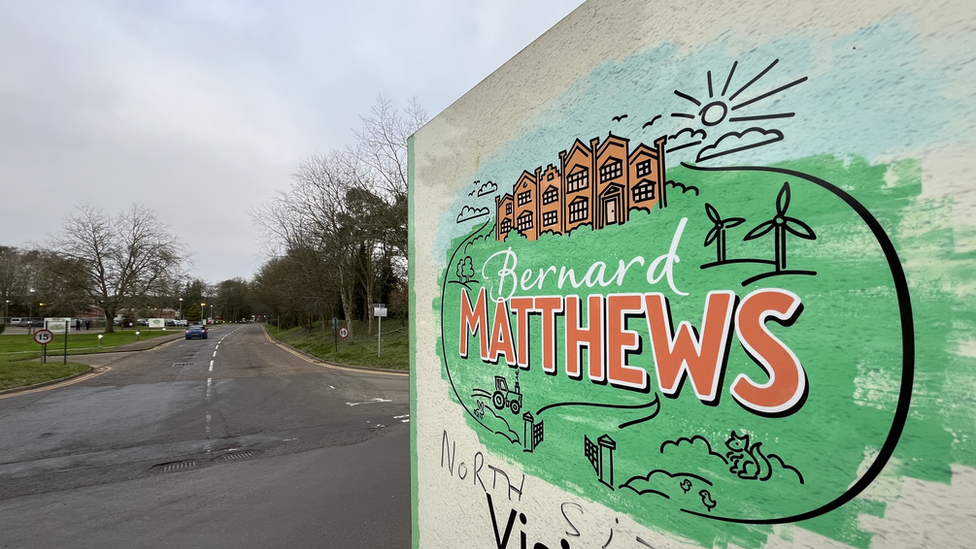
Great Witchingham has been the home of Bernard Matthews since 1955
Bernard Matthews has announced proposals to close a factory at its headquarters in Great Witchingham, Norfolk, where its founder used to live and where he built his empire.
It is the latest setback for the poultry producer made famous by the leader's "bootiful" catchphrase and Turkey Twizzlers.
What happens next?
Who was Bernard Matthews?
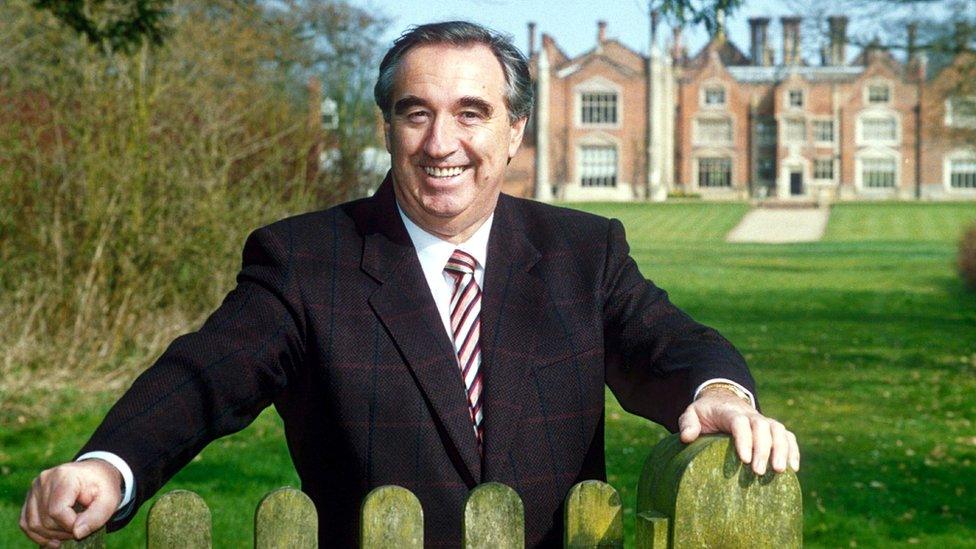
The son of a mechanic, Bernard Matthews was born in Brooke, Norfolk, in 1930 and left school at 16
Entrepreneur Bernard Matthews began his rise to prominence in 1950 when he bought 20 turkey eggs and an incubator at a market in Acle, Norfolk.
At the time, turkey was expensive and only really eaten at Christmas.
But by the 1960s, Bernard Matthews entered the Guinness Book of Records as the biggest turkey farmer in Europe.
His image was strongly tied to Norfolk and many of his TV adverts were set in the grounds of his Great Witchingham Hall estate, which became his home and the company headquarters after he bought it in 1955.
Matthews was known for his "bootiful" catchphrase and his success led to an expansion of turkey related products.
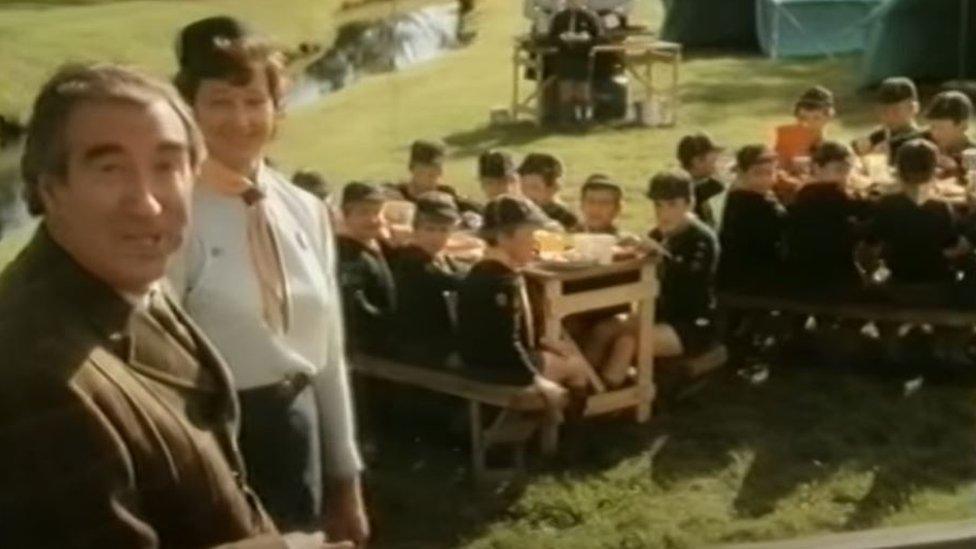
'They're bootiful, Bernard!' - adverts for Matthews products were filmed on his Great Witchingham Hall estate
One of these, the Turkey Twizzlers, was singled out by Jamie Oliver in 2005 as being indicative of the kind of food that should not be served to children in schools, with the chef campaigning for healthier alternatives.
Many schools took heed of his advice and profits fell in the wake of the campaign.
Matthews faced other difficult times in his latter years - with workers found to be playing "baseball" with live turkeys and then the outbreak of bird flu in 2007 resulting in the deaths of nearly 160,000 of his animals.
The entrepreneur died in 2010 on the fourth Thursday of November, which coincided with US Thanksgiving, often referred to as Turkey Day.
How big is the company now?
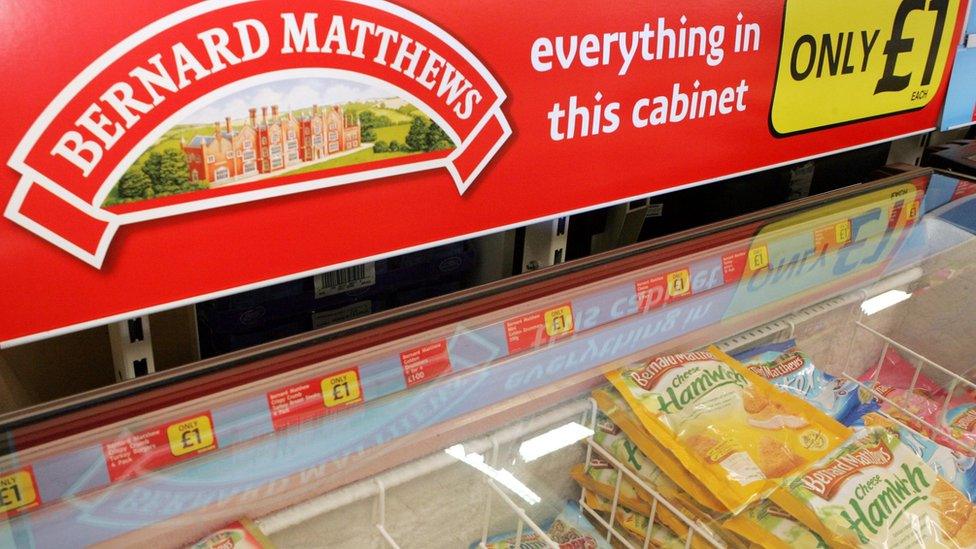
Turkey Twizzlers were one of Bernard Matthews' biggest selling products until they were dropped from school menus in 2005
The company currently employs about 2,000 people and remains a key supplier of turkey across the UK.
It says it provides frozen and cooked meat products for almost all of the main supermarkets, claiming this means Bernard Matthews products are consumed by about half of homes in Britain.
Turkey based products remain the focus of the business.
What has happened in recent years?
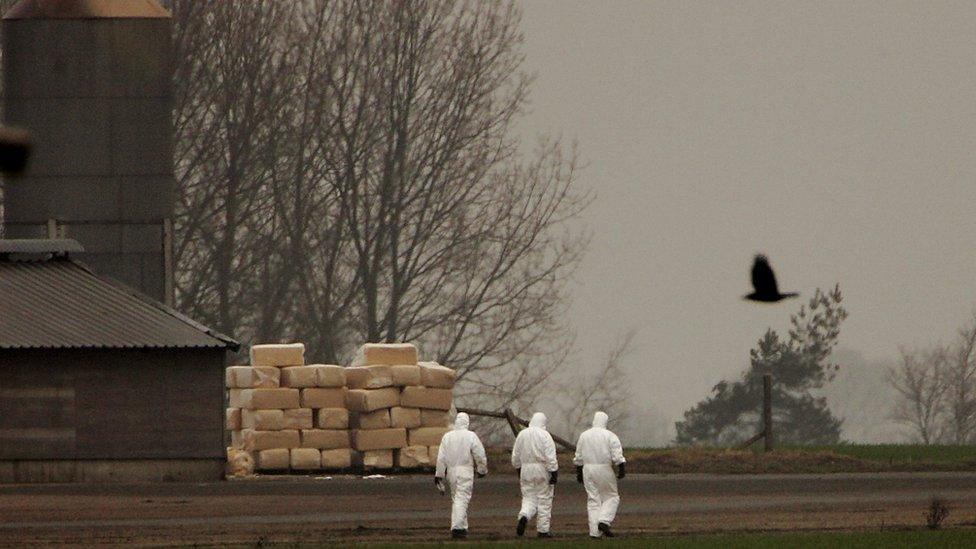
Outbreaks of bird flu have caused disruption to the poultry industry in the past two decades
In 2016, six years after the death of Bernard Matthews, the company was bought by the founder of the 2 Sisters Food Group, Ranjit Singh Boparan.
Since then, the poultry industry has faced a number of challenges, including labour shortages caused by Brexit and the Covid-19 outbreak.
The cost of fuel, turkey feed and energy has also risen in recent years, putting additional pressure on the sector.
In 2022, Bernard Matthews reported loses of £25m, which had reduced to £10m in 2023.
What has the company said?
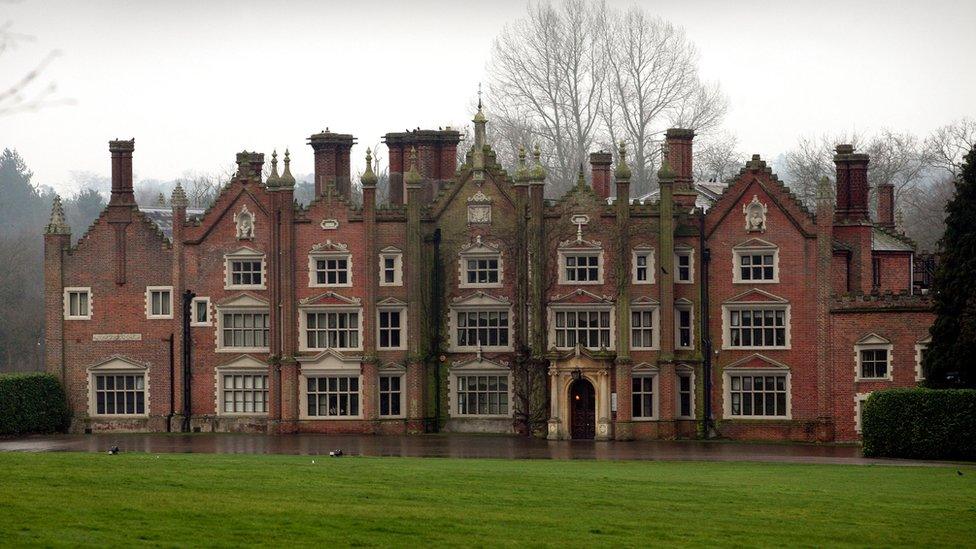
Bernard Matthews bought Great Witchingham Hall, near Norwich, in 1955 which remains the iconic headquarters of the business
A spokesperson for the 2 Sisters Food Group said proposals to close the Great Witchingham factory were due to it becoming "loss-making and not commercially viable".
They said a review had been carried out and despite recent investment, the business continued to operate in an "extremely challenging environment".
"We understand this will be extremely disappointing news for everyone concerned," a statement added.
"This proposal is in no way a reflection of the hard work and commitment our colleagues show every day."
What does it mean for the future?
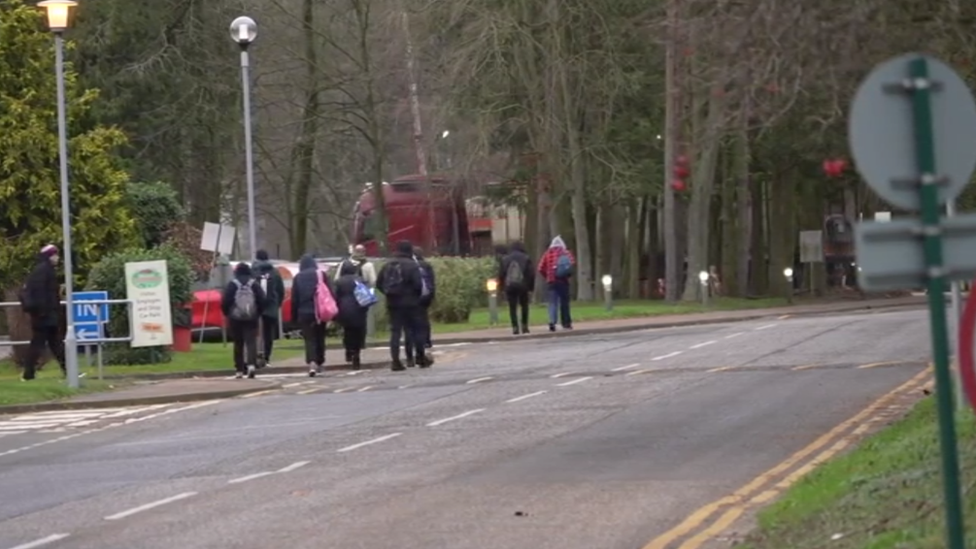
Staff at Great Witchingham told the BBC they worried about being transferred to other factories
A 45-day consultation between staff and unions will begin on Monday.
The 2 Sisters Food Group said almost all of the 600 employees currently employed at the Great Witchingham site would be offered alternative jobs at five other factories linked to the company across Norfolk and Suffolk.
Mark Jaina, a regional officer for the Unite union, said: "The risk of redundancy is not imminent to anybody unless someone's individual circumstance dictates that they can't go to another one of these plants.
"[Bernard Matthews] intend to increase the rates of pay and keep the terms and conditions for every employee the same, whichever site they're deployed to."

Follow East of England news on Facebook, external, Instagram, external and X, external. Got a story? Email eastofenglandnews@bbc.co.uk or WhatsApp 0800 169 1830
Related topics
- Published11 January 2024
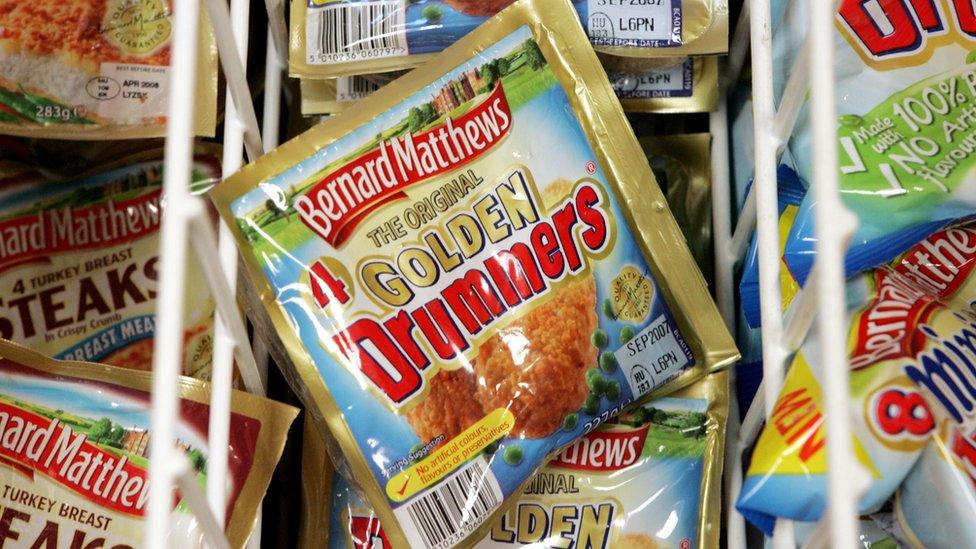
- Published20 September 2016
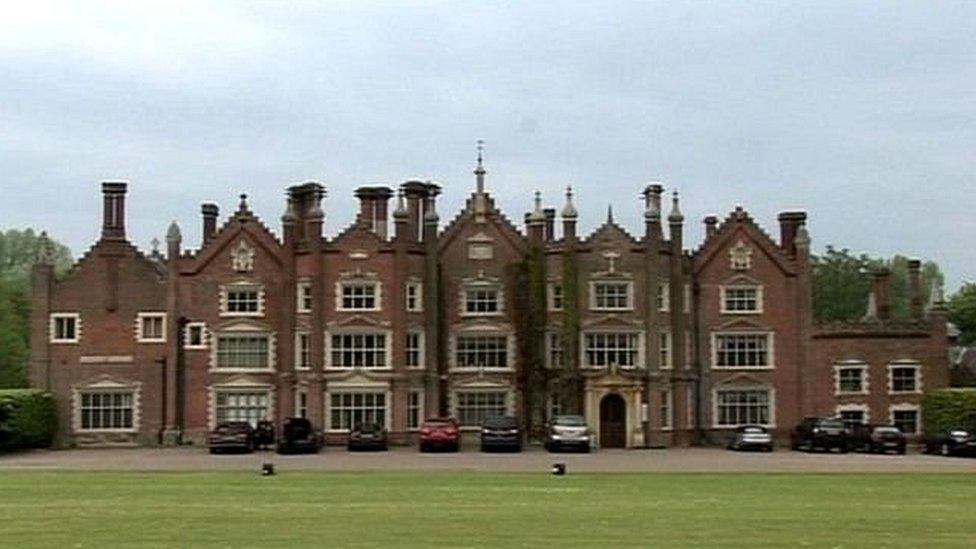
- Published26 November 2010
- Published26 November 2010